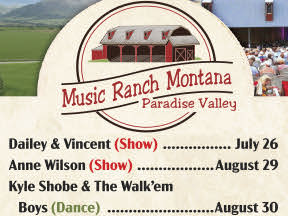by Lynn Flaming
The honey bee crisis is threatening agriculture and ecosystem health by disrupting pollination. Want to help? Consider beekeeping or growing bee-friendly plants in your garden!
The Gallatin Valley Beekeepers (GVBK) and Bozeman Natural Beekeepers meet monthly to link people to information, supplies, mentors, and other resources. The next meetings are set for Thursday, January 18th and Tuesday, February 13th. Both will run from 6–7:30pm at Bozeman Public Library. These events are free and open to all.
Honey bee production is regulated as a form of livestock. Although the state does not require registration, GVBK recommends you register your bee yard with the Montana Department of Agriculture. This ensures you receive helpful notifications. It also helps protect hives from unwanted pesticides, by alerting commercial and municipal pesticide applicators to hive locations so that they can take precautions.
Plan ahead.
Timing matters. January is the deadline for placing your order for honey bees in the spring. Waitlists are common, so it’s important to order early.
Marketable products.
In addition to honey, bees, queens, beeswax, propolis, pollen, and royal jelly are sought-after products. Even more prized are untreated bee products. Treated honey sells for $2 per pound in bulk, while untreated honeys average $20 per pound.
Bee Forage Dos and Don’ts.
Not interested in keeping bees but want to help? 1) Start by planting forage for pollinators, especially varieties that bloom and have nectar August through October. In 2017, food supplies dried up by early August due to drought. Forage is less critical in Spring because they can feed on wild dandelions. 2) Avoid chemicals. If you need to spray, do not spray when plants are in flower — wait until dusk when the honeybees are back in their hives for the night to give volatile chemicals time to evaporate. Spray only when winds are calm to avoid chemical drift.
Swarm sightings.
Wild honey bees are highly prized because genetic diversity increases resilience. Lack of genetic diversity is one of the main causes for honey bee die-off. If you see a bee swarm or find unwanted bees at your home, please contact the club. We’re happy to catch and move swarms. If you have a tree where swarms tend to congregate, we’ll install a swarm trap to collect the colony when the next swarm appears.
In addition to the upcoming GVBK meetings, Rick Molenda, owner of Western Bee Supplies, a Montana-based beekeeping supplier and woodenware manufacturer, will teach beginning and intermediate beekeeping in Bozeman in February (date and time to be announced). Rick previously taught beekeeping through the Extension Office in Bozeman for years. Learn more at www.westernbee.com.
For further information about the GVBK monthly meetings and beekeeping at home, email GallatinValleyBeekeepers@gmail.com, call (406) 219-2054, or find us on Facebook. Watch for our website www.GallatinValleyBeekeepers.org later this year. •







